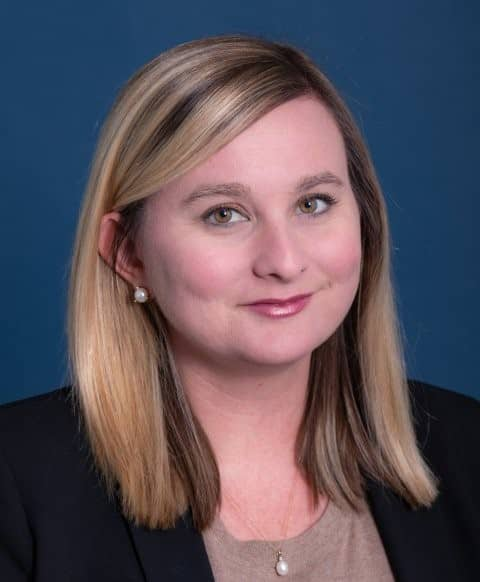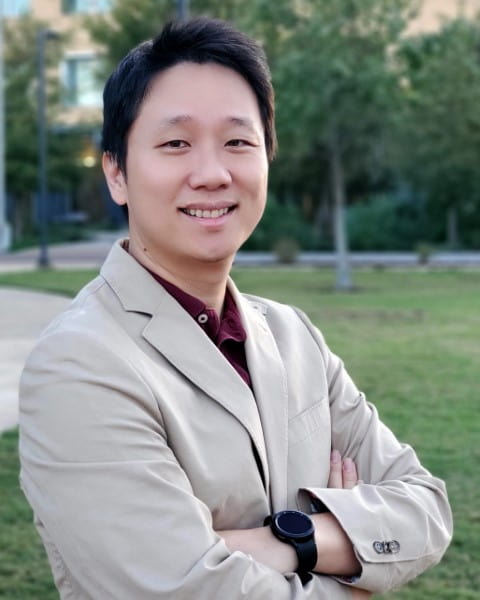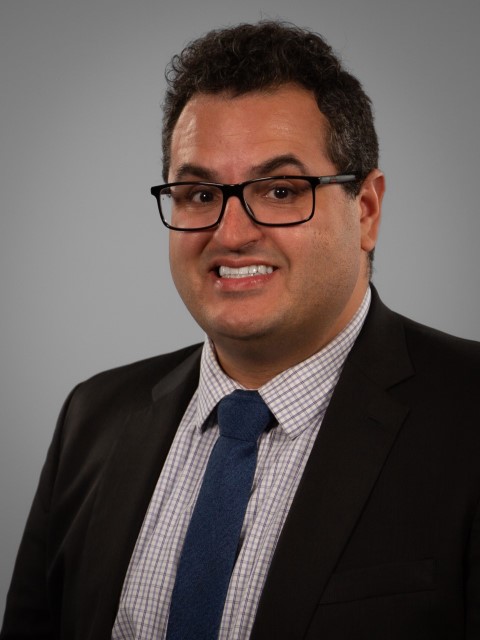ExpandED: Broadening the Understanding of Contemporary Issues in Education and Policy
The Texas Tech University Educational Leadership Policy faculty in collaboration with the Center for Innovative Research in Change, Leadership, and Education (CIRCLE) invite you to join us for our virtual brown bag series, “ExpandED: Broadening the Understanding of Contemporary Issues in Education and Policy.” Featuring researchers from the College of Education and various institutions across the country, the aim of this series is to bring together students, faculty, and researchers at Texas Tech and beyond to disseminate knowledge that is of immediate relevance to educational leadership and policy and facilitate the cross-pollination of ideas across multiple institutions.
This year, audiences from across the country will gather virtually to engage with speakers on topics related to policy evaluation and open-science research practices, evolutions and social constructions of education policy over time, and empirical research noting the barriers and challenges to providing equitable educational opportunities for historically marginalized students.
To access recordings of all previous ExpandED talks, please visit the webinars page linked here.
Schedule and Summary of 2025-26 Talks
Why Rural Matters for Education in Texas
June 6th, 2025, 11:00 a.m.
If you viewed the session (live or recorded), we invite you to a brief survey: https://forms.gle/wLGwRF8PZzMs6f6A8
Devon Brenner, Ph.D.Director and ProfessorSocial Science Research Center
Mississippi State University
Karen Eppley, Ph.D.Teaching Professor of Literacies and English LanguageDepartment of Curriculum and Instruction
Penn State University
Nearly 700,000 students in Texas attend rural schools, yet the needs of rural schools are often neglected in state and national policy. In this conversation, we will share the most recent data about the state of rural schools in Texas, drawn from the national Why Rural Matters report, and summarize some of the key policy issues for rural education, from school choice and vouchers to teacher shortages and staffing. This session will examine why place matters for education policy making and offer Critical Rural Policy Analysis as a framework.
Leading Evaluation from the Field: Best Practices for Educators to Use Data to Drive Continuous Improvement in the K-12 Space and Inform Policy Advocacy
September 24th, 2025, 5:30 p.m.
If you viewed the session (live or recorded), we invite you to a brief survey: https://forms.gle/wLGwRF8PZzMs6f6A8
Tyler ThurAssociate Director of Data and Evaluation for the Office of K-12 OutreachCollege of Education
Michigan State University

Citizen scientists have become essential actors in the natural sciences, as seen in their efforts to help uncover the Flint water crisis, monitor wildlife populations, and inform environmental litigation and regulation. In the K-12 space, teachers hold similar potential power to inform district-wide pedagogical approaches and broader local and state education policy debates through their own data analysis and evaluation efforts. This session will delve into some strategies for educators to review the data available to them, share a collection of resources to structure related evaluations, identify a few places where teachers' analyses are most needed to advance education improvement efforts, and strategize some best practices when it comes to this advocacy work whether participants are interested in shaping experiences in their school, district, region, or state. In doing so, this session will consider how educators can move from being agents acted upon to serving as data-driven policy entrepreneurs.
Caring School and District Leadership: Findings and Recommendations for Research, Policy, and Practice
October 7th, 2025, 12:00 p.m.
If you viewed the session (live or recorded), we invite you to a brief survey: https://forms.gle/wLGwRF8PZzMs6f6A8
Kate Elizabeth Kennedy, Ph.D.Assistant ProfessorEducational Leadership and Policy Studies
University of Cincinnati
Care. Love. Social-emotional well-being. These are important concepts in K-12 schools, with a robust empirical body of research to guide leaders in educational systems. In this session, we will explore the research base on care in education. I will share recent research-based practices that support care and social-emotional well-being in school systems, drawing on case study examples. Recommendations for researchers and practitioners will be shared, along with a discussion of research gaps and possibilities for more caring school systems.
The Ideas Animating Teacher Licensure Reform and Implications for Democratic and Equitable Policymaking
November 3rd, 2025, 12:00 p.m.
Meghan Comstock, Ph.D.Assistant ProfessorDepartment of Teaching and Learning, Policy and Leadership
University of Maryland
As districts and states grapple with teacher shortages, concerns over licensure tests as gatekeeping mechanisms for teachers of color, and the perennial question of how to best support teachers throughout their careers, policymakers have turned their attention to innovations in teacher preparation and licensure. In this talk, I present findings from a study of the policymaking process in North Carolina in 2021-22 aimed at reworking the state’s teacher licensure system. This study uses qualitative and epistemic network analysis of public subcommittee meeting transcripts and associated artifacts to examine how beliefs about teaching unite and divide a state-level coalition pursuing teacher licensure policy reform. I offer considerations for teacher licensure reforms and implications for democratic and equitable policymaking.
Multiple Definitions, One Pathway? How CTE Coursetaking Criteria Shape Concentrator Classification and Student Outcomes
January 27th, 2026, 12:00 p.m.
Jennifer Freeman, Ph.D.Assistant ProfessorDepartment of Educational Psychology, Leadership, & Counseling
Texas Tech University
As policymakers increasingly invest in career and technical education (CTE) to expand opportunities beyond high school, a key question remains: Who qualifies as a CTE concentrator? This designation is not just a label; it influences federal reporting, program accountability, and access to targeted support at the school level. Although federal policy provides a baseline definition, states retain flexibility in how they apply it. As a result, there is wide variation in how concentrators are identified. Using student-level data from Texas, this study applies multiple Perkins-aligned definitions of concentrator status to the same population of students to compare which students are identified under each, how student characteristics differ across definitions, and how each definition is associated with postsecondary and labor market outcomes. The findings highlight the implications of definitional choices, which shape not only who is included in reporting and support but also how the success of CTE pathways is understood.
School Leadership Decision-making and Student Achievement Under Student-Based Budgeting: Evidence from an Urban School District
Feb 17th, 2026, 12:00 p.m.
Dillon McGill, Ph.D.Assistant ProfessorDepartment of Educational Psychology, Leadership, & Counseling
Texas Tech University
Over the past three decades, around 20 school districts across the United States have adopted a school finance and governance reform referred to as student-based budgeting (SBB). SBB consists of two parts: the adoption of a weighted student funding formula that allocates dollars to schools based on student counts and characteristics and site-based budgeting. This approach aims to more equitably distribute resources by providing increased funding for subgroups such as English language learners and special education students. It also empowers school leaders to meet the needs of their students by giving them flexibility in how to budget their school’s funding. In this talk, I present evidence of the impact of additional funding on student outcomes provided by SBB. Additionally, using data from interviews with school leaders in the district, I also discuss how principals approach their new budgeting role and their perceptions of the policy.
Signaling Early Interest: The Effects of High School Education Courses on Teacher Outcomes
Feb 24th, 2026, 12:00 p.m.
Danielle Edwards, Ph.D.Assistant ProfessorEducational Leadership and Workforce Development
Old Dominion University
States have incentivized school districts to implement education courses and extracurricular activities in their high schools as a strategy to grow interest in the teaching profession. In this study, we estimate the impact of access to high school education courses on the probability of becoming a teacher by leveraging the staggered rollout of these courses across Texas high schools from 2005 to 2015 using a difference-in-differences design. Although individuals who take high school education courses are four times more likely to become a teacher, we find no evidence that exposure to these courses increases the probability of becoming a teacher. This suggests that enrolling in high school education courses is more of a signal of early interest in the teaching profession rather than a means to induce individuals to become teachers. We then describe who enrolls in high school education courses and examine the placements, retention, and effectiveness of teachers who enrolled in these courses while they were in high school to better understand the role of early interest in teaching in teacher outcomes.
What do school boards do anyway? An NLP-Based Analysis of School Board Meeting Minutes at Scale
March 3rd, 2026, 12:00 p.m.
Kylie L. Anglin, Ph.D.Assistant ProfessorDepartment of Educational Psychology
University of Connecticut
Despite the authority granted to school boards, research on their day-to-day functioning has long lagged behind scholarship on other aspects of American education. While decades of qualitative case studies and governance theory have offered important hypotheses about what school boards should do, there remains limited large-scale evidence on what they actually do in practice or how their actions vary across geographic, demographic, or academic lines. This research addresses that gap through a natural language processing (NLP) analysis of more than 40,000 meeting minutes spanning four years (2018 to 2022) and 500 public school districts across the United States.
Exploring Dual Credit Programs in Texas
March 24th, 2026, 12:00 p.m.
Han Bum Lee, Ph.D.Assistant Professor of Research, Associate DirectorUrban Education Institute, Educational Psychology
University of Texas at San Antonio
Sharon Nichols, Ph.D.Department Chair and Professor, Educational Psychology
Director, Urban Education InstituteUrban Education Institute, Educational Psychology
University of Texas at San Antonio
In this presentation, I will explore the landscape of dual credit programs in Texas, with a focus on student accessibility and utilization, guided by the following three questions:
- What factors influence students' enrollment in dual credit programs for academic and workforce education?
- How does access to and participation in dual credit programs differ among student groups, school types, and geographies?
- What are the backgrounds and qualifications of those who teach dual credit programs, and are they adequately qualified and distributed across different subjects, schools, and geographies?
A Warm Welcome: The Impact of Newcomer School Choice on Student Educational Outcomes
March 31st, 2026, 12:00 p.m.
Brian Holzman, Ph.D.Assistant ProfessorDepartment of Educational Administration & Human Resource Development
Texas A&M University
The U.S. has seen an unprecedented influx of migrants over the past decade, particularly among school-aged children. Newly arrived immigrant adolescents—referred to as newcomer students—often face limited school choices due to marginalization related to language proficiency, race/ethnicity, poverty, and, in many cases, trauma. Newcomer programs are designed to provide a transitional environment that supports immigrant adolescents in developing English language skills, addressing socioemotional and mental health needs, and integrating socially into American life. Using administrative data on newcomer students from a large, diverse urban school district in Texas, and applying descriptive and instrumental variable methods, this study estimates the impact of enrolling in a full-day, separate-site newcomer program on student outcomes. We find that enrollment in a newcomer school has strong positive effects on English language acquisition, as measured by state test scores and reclassification rates, and strong negative effects on school disciplinary incidents. These findings suggest that newcomer programs may be a promising strategy for supporting English language development and promoting the successful integration of immigrant youth into U.S. schools.
Profession or Marketplace?: Mapping the Competing Logics of K-12 Teacher Education Reform
April 21st, 2026, 12:00 p.m.
Maya Kaul, Ph.D.Postdoctoral Research FellowGraduate School of Education
University of Pennsylvania
Over the last several decades, teacher education reform has emerged as a site of political struggle between diverse political and ideological camps seeking to shape the future of the teaching profession and education system at large. As the entry point into the teaching profession, teacher education programs have the potential to shape who becomes a teacher, how they are prepared to teach, and which knowledge informs the work of teaching. And yet, despite decades of competing reforms aiming to uplift the K-12 teaching profession, the status of the K-12 teaching profession has reached its lowest levels in the past 50 years (Kraft & Lyon, 2024). This raises the question: why has there been “so much reform and so little change” in teaching and teacher education (Payne, 2008)? In this qualitative multiple case study, I seek to answer this question by examining the extent to which reforms to teacher education are institutionalized and shape teacher education programs as organizations. Drawing on 73 semi-structured interviews with program leaders, teacher educators, and teacher candidates across three US teacher education programs (two traditional programs and one for-profit, online program), I find that programs operate as hybrid organizations, and are organized around multiple competing reform logics. Each program draws upon two “logic constellations”—democratic professionalism and corporate marketplace—which both shape and constrain programs’ enactment of their missions. Together, this paper offers important lessons to research, policy, and practice regarding the potential of reforms as a lever for transforming the K-12 teaching profession.
College of Education
-
Address
Texas Tech University, College of Education, 3002 18th Street Lubbock, TX 79409 -
Phone
(806) 742-2377 -
Email
educ.webmaster@ttu.edu













